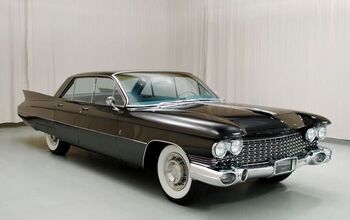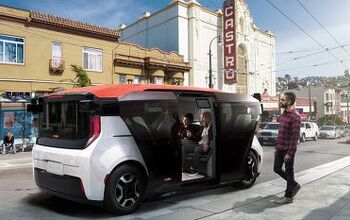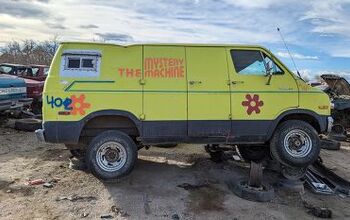White House Disowns Pay-Per-Mile Tax Plan
Hackles were raised here at TTAC and around the internet this week, when a draft version of the Transportation Opportunity Act circulated, tipping us to the administration’s preference for pay-per-mile road taxation. According to that version of the bill,
section [2218] would establish a Surface Transportation Revenue Alternatives Office within the Federal Highway Administration. The office would analyze the feasibility of implementing a national mileage-based user fee system that would convey prices to users to reflect system use and other travel externalities and serve as a funding source for surface transportation programs.
TTAC has been tracking and criticizing attempts at pay-per-mile taxation (both state and federal) since at least 2007, and because Transportation Secretary Ray LaHood had previously come out in support of pay-per-mile road taxes, we weren’t surprised by the TOA’s inclusion of a move towards pay-per-mile. And because the White House smacked LaHood down the last time he praised pay-per-mile, we aren’t all that surprised to find The Hill reporting that the White House is disavowing any interest in pay-per-mile. Spokesfolks explain:
This is not a bill supported by the administration. This was an early working draft proposal that was never formally circulated within the administration, does not take into account the advice of the president’s senior advisers, economic team or Cabinet officials, and does not represent the views of the president
So fear not, Americans opposed to a GPS tracker in every car: the White House has no interest in tracking your every movement. But until such time as a politician finds the cojones to address the highway fund’s shortfall by raising the gas tax, expect pay-per-mile to pop up again and again.
More by Edward Niedermeyer

































Comments
Join the conversation
http://www.taxfoundation.org/research/topic/92.html That took me about 5 minutes of googling to find. I have books that state that but they're harder to access since you would need an academic account. So to reiterate the point, urban society pays for everything while ex-urban and rural society gets all the benefits effectively. That is some what of an exaggeration but in tighter housing setups the roads may be wider but are far shorter compared to suburban and exurban drivers. This tax is setup if flat based upon mileage hurts suburbia in general but will probably be less than what the average soccer mom pays to run her Tahoe. The problem is that as our CAFE raises our consumption in theory will go down, I understand there will be an uptick in driving but there is a limitation of how far anybody will drive. If gas reaches 5 dollars a gallon the less than 50 cents we pay will be less than 10% of the overall price and arguably the gas companies will simply raise prices further to consume that difference. The only answer we have is to simply raise the CAFE requirement higher and higher and increase spending on public transit to make it a viable option for more people.
Does anyone honestly believe that the per gallon gas tax wlll go away if the mileage tax is instituted? That's the goal to have both so that more mney can be diverted to other uses. Roads will continue to be a low priority with the people in charge now.
Totally agree with MikeAR. If we're going to institute a toll system in place of the Federal Highway System, I want to see an end to the Federal Fuel Tax. I live just north of downtown Dallas and use the North Dallas Tollway quite frequently. Compared to I-35, the Tollway's roads are immaculate, traffic flows much better, accidents/obstructions are dealt with very quickly and the tolls are paid via TollTag or via a bill mailed to the vehicle's owner (identified by license plate). I'd first start the transition in major cities with the "beltway" highway. (Example: Transition I-35 within the 635 Loop to toll, leaving the Loop as a non-toll alternative) The key goal should be to restore the highway infrastructure back to its 1950's zenith. As for increases in trucking costs, this is where rail is best suited. Transition from one transit system to another will cause short term unemployment, but the railroads will need to increase their hiring for maintenance, cargo management and other positions.
Of course they denied it. You can't run around tipping your hand when The Man is working the Campaign Trail!